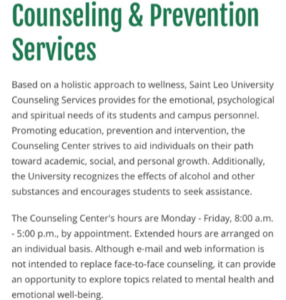For many people, Thanksgiving is a time spent with family and friends to celebrate and give thanks for everything they have. For most people, the holiday is a joyous time filled with fun, laughter and of course, food. After a long day of preparing food, traveling to the house of a family member and starving all day until dinner, people sit around, laugh, eat and catch up with each other. For most people, it seems difficult to imagine that that isn’t how everyone spends their Thanksgiving.
Thanksgiving can be stressful (for lack of a better, all-encompassing term) for many people, whether it’s because they are spending the holiday alone, Thanksgiving is a time of trauma for them, they just don’t celebrate Thanksgiving, or whatever the circumstance may be. For people for whom this is the case, Thanksgiving can be a very challenging holiday and very taxing on a person’s mental health.
Everyone deserves to enjoy the holiday no matter how they spend it, even if that means someone puts their mental health before a tradition. According to Tiffany Nelson, a prevention counselor from Counseling Services on University Campus, one of the biggest reasons why people face mental issues during Thanksgiving break is, “because of the expectations set by media and social media that the holiday time is supposed to be perfect.” She also noted that “being around a lot of family members can naturally be stressful.”

Contact information for the staff at University Campus Counseling Services. Source: www.saintleo.edu/student-affairs-campus-students
In an interview with Tiffany Nelson, she commented that there is a slight increase in students coming to counseling services right before Thanksgiving break than there is during the earlier parts of the semester, and she attributes this increase to students being “burnt out” at this point in the semester.
Tiffany also stated that the most common issues students come to counseling services for during Thanksgiving time are, “anxiety as number one, depression as number two,” and stress and feeling burnt out, as previously mentioned. Additionally, Nelson stated that other common issues people face during Thanksgiving time are, “issues with family and other relationships, and any chronic mental health issues that are exacerbated in times of stress.” For many mental issues, symptoms can be challenging to recognize and therefore tricky to combat; but according to Nelson, symptoms of the above-mentioned mental issues can include “changes in sleep and appetite (too much or too little), lack of pleasure or interest in activities that were previously found enjoyable, sadness, emptiness, an emotional disconnect and withdrawal.”
While many people have strict holiday traditions that they or their family observe, it cannot be emphasized enough that it is vital to remember that it’s okay to deviate from traditions if it saves someone’s mental health.

University Campus Counseling Services offers support not limited to school related stresses. Everything discussed with a counselor is kept confidential (unless the student is deemed a threat to themselves or others, as counselors are mandatory reporters in that situation) to make students feel more comfortable. Source: www.saintleo.edu/student-affairs-campus-students
A person starving all day and having those feelings of hunger and resentment growing all day just isn’t worth that stress mentally (or physically). Instead, eating a small breakfast and focusing on filling it with protein that will last until Thanksgiving dinner, or starting a new tradition of a special Thanksgiving breakfast are good alternatives.
Instead of everybody going to one person’s house and cramming into tiny rooms with relatives they may not want to see for various reasons, good alternatives could be taking the day for individual interests and doing something genuinely enjoyable.
Another good alternative to the typical Thanksgiving festivities is doing something to give back to someone else. For people who are spending the holiday alone and decide to go out to a restaurant instead of cooking enormous amounts of food at home when it’s just them (often senior citizens), going out and sitting with someone else who is also alone could be a great source of comfort for everyone involved. Also, many people use the Thanksgiving holiday time to volunteer their time making or serving meals to the homeless or volunteering with children making hand turkeys and watching Charlie Brown’s The Great Pumpkin or the Macy’s Thanksgiving Day Parade. Feeding the physical body is often just as important as feeding the soul and helping other people with their problems often helps distract a person from their problems in addition to making them feel good about what they are doing.
Some other tips for surviving the Thanksgiving holiday include knowing and prioritizing what has to be done versus the things that aren’t completely necessary and knowing to say no. For example, according to pscychcentral.com, if someone has already said they’ll bring dessert this year but nobody has volunteered to cook the turkey, it isn’t necessary to make more pies, but it is necessary to coordinate who makes the turkey. If somebody asks someone to go grocery shopping for their portion of the Thanksgiving meal, they have the right to say no, even if they’re going to the store anyway.
The advice Nelson gave to students struggling with mental health at Thanksgiving to help combat the symptoms mentioned above would be to, “take care of themselves, keep up a sense of routine and get outside to get some physical activity.” Additionally, Nelson also recommended “having a plan to cope if feeling stressed, getting a little bit of space and giving yourself a reality check not to fall into expectations of perfection and remember that there are ups and downs and that’s okay.”





